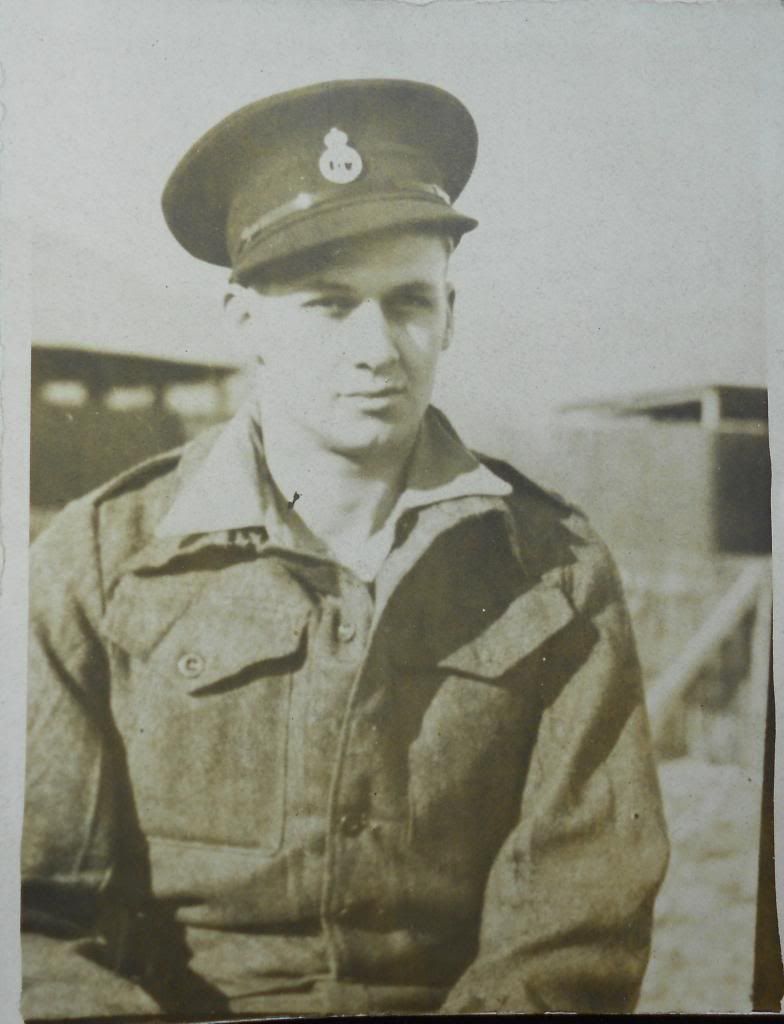Wednesday, 4th December, 1946
After such a poor night we were awake at dawn and eager for our
breakfast. We arrived at Dijon where we changed trains then we retraced our
journey for some fifteen miles to an army camp.
Here it was we breakfasted. We
were so hungry now that the poor quality food was eaten with little comment, in
a hut which was in semi-darkness.
Before leaving the camp we were given two bread rolls, a sausage roll,
a cake and a bun. These were to comprise
our “haversack ration” and were to be our only food until we reached Toulon.
With this sorry prospect we once more climbed up into the train to
continue our journey.
Travelling parallel to the River Seine we saw farmers
in the fields
ploughing with teams of oxen. The land
lies very flat and I found it uninteresting, broken only occasionally with a
cluster of trees or a stray village. At
a little after midday we passed
through the village of Saint George.
At two in the afternoon we arrived in Lyons where the train came to a standstill. Immediately Frenchmen came alongside the
carriages shouting up to the windows from the low platforms. Asking us for cigarettes & soap. Knowing these were in short supply we decided
to barter for things we needed. My
friend and I were philatelists so asked them in our very imperfect French
whether or not they had any postage stamps to exchange. At first they thought we wanted them in order
to post a letter and they told me that we being military did not need stamps to
post mail. When I explained that I
collected stamps they searched their letters, wallets, pockets etc, but only
one man had any at all. These were two
three franc stamps for which I gave him three cigarettes. This pleased both him and I and I believe
that is how all bartery should be concluded.
He was also able to tell me that Toulon via Marseilles was a distance of 600km.
Leaving Lyons at about two o’clock we continued our journey and being in hilly
country we passed through many long tunnels.
We saw on some of the hill sides
caves we supposed had been constructed and used during the war years for some
purpose.
All the countryside has about it a dark foreboding atmosphere. I cannot quite account for this air.
There has been no great and obvious ruination en route though Lyons has obviously been the centre of larger
struggles. Only temporary bridges span
the Seine in this city.
On passing through Valencia our route took us through a valley in the French
Alps whose snow capped peaks lay about a mile distance from us on either side. Trees have also become more prevalent in the
picture, these are principally Poplars with firs planted as wind breaks.
From Avignon onwards it began to darken until at 6pm we could no longer see from the carriage
window. As the sun left us so the cold
came in making us shiver in our seats.
After being in the train for some twenty six hours we arrived at our
destination Toulon, at 9pm. We piled out onto the
platform and were loaded again, this time into a truck with our kit.
 |
"The recruit en route.
Toulon 1946" |
 During the latter part of the train journey we had all changed into our
uniforms. Khaki battle dress and khaki
shirt complete with batchelor buttons, black heavy boots and a blue peaked cap.
During the latter part of the train journey we had all changed into our
uniforms. Khaki battle dress and khaki
shirt complete with batchelor buttons, black heavy boots and a blue peaked cap.
We travelled through cobbled streets of Toulon and out into the country for about fifteen miles to
army transit camp.
I don’t think during the whole of our journey from Calais to Toulon that we saw more than thirty Frenchmen. At ten in the evening the streets of Toulon were deserted but for corner queens.
We found the army camp to be very big consisting of wooden huts and
buildings.
We were lodged in several of these huts, twenty six of us sharing one
with double bunks along the walls.
We were each given a palliasse and three blankets and told to do what
we liked with them.
From breakfast we had had only our haversack ration so were feeling
very hungry.
We went to the dining hall each with his plate, knife, fork, spoon and
mug. We queued up and were ladled out
our meal which had been cooked and served by German prisoners.
These prisoners were very friendly and do all they can to help you,
such as cleaning cutlery etc. In conversation with some troops I asked them
whether they thought such acts were done out of kindness or indirectly for
their own benefit. The troops told me
that on the whole they preferred the German prisoners to French working around
the camp. The French in the camp are not
trusted and our troops if in a generous mood will rather part with cigarettes
to Gerries who will smoke them themselves, than Frenchies who will sell them in
the town on the black market.
We turned in at eleven and although the atmosphere of the hut was foul
and heavy from the dust of the recently installed palliasses, I slept soundly.























